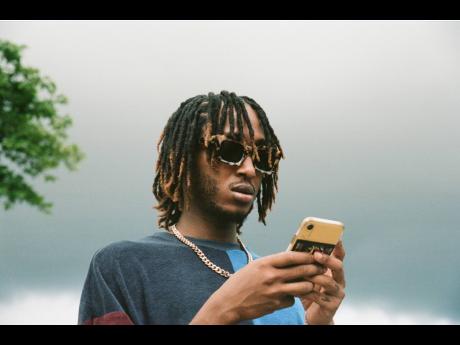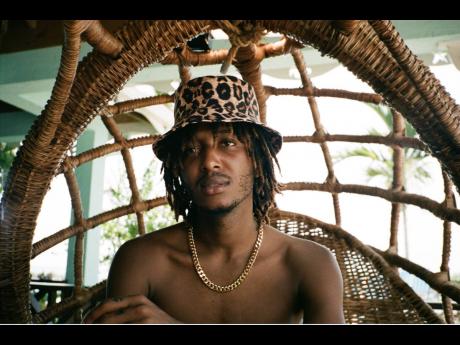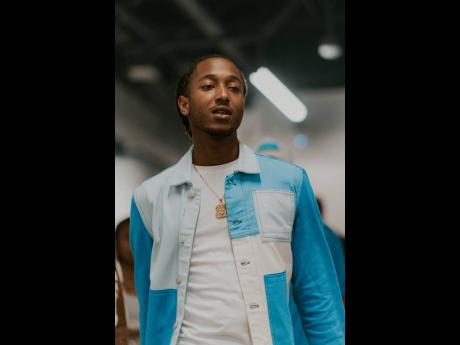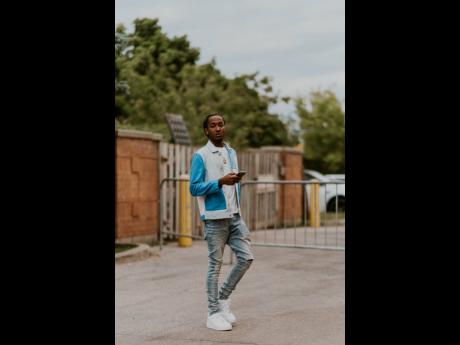Five Questions with Projexx
With a handful of viral singles, a major feature on an internationaly acclaimedl artiste’s Grammy-nominated album, and an audiovisual catalogue that makes it look as though he’s never experienced a lockdown, Projexx’s rise to prominence has been anything but accidental. The musical prodigy has spent the last few years developing his melodic sound, and since signing to American music giant, Warner Records, his spot in the pantheon of modern contemporary pop, mainstream and crossover music has become a sure thing.
The son of producer Lloyd ‘John John’ James and grandson of the legendary King Jammy, Projexx “was raised on the highest quality of recordings and had no choice but to listen and make quality music that can cross over”. His poetic musings navigate love, lust, infidelity and spiralling emotions, and the latest singles Caution and Turn Around, released simultaneously, reflect the extraordinary chemistry between Projexx and internationally acclaimed British-Ghanaian producer Juls.
He recently performed on the first ever AFROWAVETO Festival in Toronto, with the likes of Sean Paul, Dynesti, Zenesoul and Stalk Ashley, and now has many ideas whirling around his mind that he wants to turn into action to spread his roots globally.
1. How was performing on the AFROWAVETO Festival stage in Toronto, and would you have done anything differently?
It was an historic moment to be on a show that was sold out with Sean Paul among other talented acts. The crowd was crazy, the energy was high and in my mind, it was a successful performance. I wouldn’t change anything about it. The fans were also very interactive. For me, being a Canadian and performing in Canada for the first time was a really dope moment. Big up the Toronto massive and the whole of Canada, and to Sean Paul for having me do my thing to spread our culture and music likkle by likkle.
2. Of course, we know your background, coming out of a musical family... but was this something your family envisioned for you and what path were they hoping you’d take?
Well, not only both my father and grandfather but my uncle as well, they are all producers, so, if anything they thought I was going to be a producer too. I don’t think anybody expected me to be a full on artiste but they are very proud of where I am right now adding to the legacy continuing what my grandfather started and it’s a joy.
3. Now that you’re signed to the Warner Records roster, how has your journey been since this major move?
It is a beautiful journey. I would describe it as a roller coaster but that comes with great lessons on how to handle it. It’s been great from doing a remix to one of Wizkid’s songs to being on the official Made in Lagos album which was not only nominated for a Grammy, but also recently went gold. I can safely say my singles are doing well. A lot of growth has happened since then and I have a lot more to grow.
4. You’ve always managed to present an international sound. Is this part of your strategy as an entertainer and are there any particular markets that you are targeting?
That is true. I try to approach music with a more international technique and I think that is influenced by the type of music I grew up listening to. The type that would shock people to now that as a juvenile I listened to more of the oldies, songs that over decades remain relevant by being around my father and grandfather at King Jammy’s … technically I had no choice but to listen to, and create quality music that can cross over because that is something embedded in me. My favourite artistes start with Dennis Brown to Drake and the approach they have taken, I always try to mimic it.
5. What is your view on the current flavour of dancehall in particular?
In Jamaica, there is a specific kind of lifestyle out there and certain topics that are trending right now that I don’t agree with and don’t want to indulge in. I’m a very musical person and so I try to approach everything I do on a high calibre on the international side of things, I do music for the world not one specific country. I’m leaning to the Afro-side of music because I got most recognition in that market [so] I’m trying to capitalise on that. People like that side of me. This dancehall Afro fusion I’m trying to do may not be accepted as yet, but it is taking it’s time to permeate Jamaica, which is most times, last to catch on to some things. I realise the audience loves the today and tomorrow topics but I’m about longevity, so if they don’t catch on now, they will catch on in the long run because this music will still be around.




